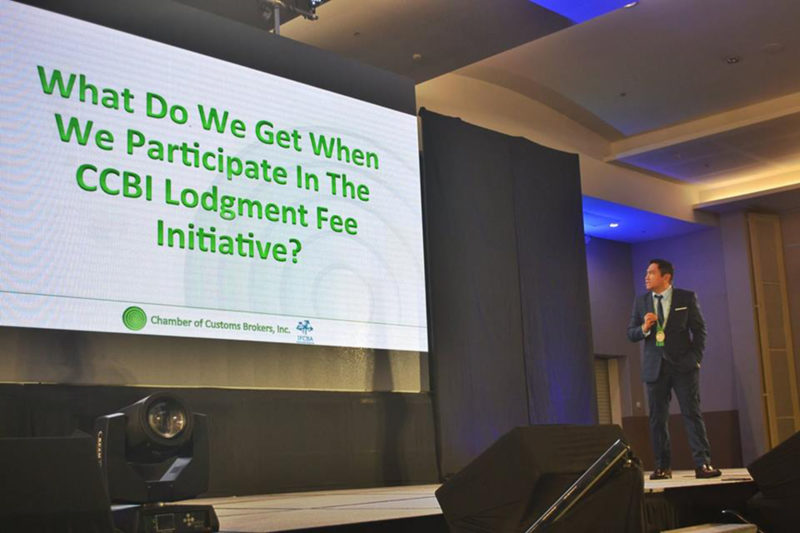
The Chamber of Customs Brokers, Inc. (CCBI) will start to strictly implement by next year the collection of membership dues as well as the imposition of penalties for non-compliance.
CCBI president Atty. Ferdinand Nague, during the organization’s recent 27th National Convention in Davao City, announced that the P500 yearly membership fee should be paid by the first quarter of every year pursuant to CCBI’s by-laws.
Nague said any customs broker who fails to pay the dues on time faces penalty under the by-laws and might even be declared as a member not in good standing.
He noted that customs brokers only pay their dues every three years during the election of the new CCBI Board, causing a shortfall in association funds. He added that the annual payment of dues is not a new policy but an old one the association is now just strictly enforcing.
Members in Visayas and Mindanao and in distant parts of Luzon may pay through their respective chapters, Nague said. Members may also make their payments through CCBI’s secretariat.
Lodgement fee
The convention also saw the re-launch of CCBI’s lodgement fee program, which requires members to pay a P10 fee for every formal entry lodgement. Nague, in an interview with PortCalls after the event, said that around 60% of CCBI members have begun complying with the program that started in October.
READ: CCBI primes customs brokers for Oct launch of P10 lodgment fee
Formerly called the amelioration fund, the lodgement fund was initially pegged at P50 and is meant to support CCBI operations. The fee covers three types of formal entry lodgement—consumption, transit, and warehousing—and does not yet include exports. The fund will be collected from lodgements made at all 17 customs districts.
The lodgement fee and other membership dues will be spent on general office management; members’ subsidy for professional development seminars and conventions; expanded members’ benefits such as medical and group insurance; and free legal assistance. Part of the collected fees in October has actually been used to subsidize expenses for the 27th national convention, lessening the fees for attendees.
The pooled lodgement fee will also be used in a campaign to have Section 106 (d), or the declarant provision, of the Customs Modernization and Tariff Act (CMTA) amended. The organization is opposing the provision that makes engaging the services of customs brokers optional two years after the law’s passage.
CCBI also plans to put up its own office building, as it is only renting space from the Bureau of Customs.
The generated fund may also be used as cash bond with the Association of International Shipping Lines (AISL) to replace the payment of container deposit. Nague said AISL general manager Atty. Maximino Cruz, in a forum with CCBI in July, mulled requiring a company check instead of cash deposit for the container deposit, and a cash bond “to answer for whatever, including bouncing checks.”
CCBI earlier said it intends to generate additional funds as the annual dues are not enough to finance association projects and programs. The group generates only P15,000 in monthly collections, with the collection increasing only during the organization’s elections.
With the implementation of the lodgement fee and strict enforcement of annual dues payment, CCBI has hired an external auditor and a bookkeeper to handle its growing funds, which are expected to reach at least P1 million each month if all members pay the lodgement fee.
Since CCBI Davao and Cebu chapters are already administering a similar program called amelioration fund, Nague said portions of the payments made to the two chapters will be returned.
Nague noted that even if members do not pay, value-added service providers, which provide the mechanism for the program, will be billing CCBI, which in turn will bill non-paying members.
To pay the lodgement fee, customs brokers will have to deposit it in a special CCBI account at a bank used by the three VASPs.
Customs brokers then need to send a copy of the deposit slip to CCBI to an email address created solely for lodgement fees. A dedicated computer in the CCBI office is being used for the program.
CCBI will then inform the VASPs of the number of entries a customs broker may make based on the deposit. – Text and photo by Roumina Pablo





